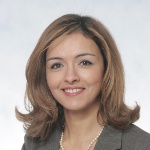Official Regulations
Study and Exam Regulations
Admission Regulations
- Original in German Language - *Deadlines: WS - Jan 15th, SS - July 15th
- Bilingual German/English - reading version
- Original in German Language (valid until WS 23/24)
- Bilingual German/English (valid until WS 23/24)
Each and every student needs to register with the University (Einschreibung, Immatrikulation) with the - Studierendensekretariat'
Then every semester you need to re-register yourself. This may be denied if the program you are in has informed the administration of the University, that you have lost the right for further study in the program.
At the end of the program you have to de-register yourself ('Exmatrikulation').
See also 'Examinations' down below.
The University Marking System uses marks from 1.0 to 4.0 and 5.0, with 1.0 being the best. Intermediate values as .3 and .7 may be used, for Master Thesis also .1, .2. A marking of 5.0 is equal to "FAIL" mark. Markings (Grades) are given as verbal/numerical Grades:
- Very Good (1.0 to 1.5)
- Good (1.6 to 2.5)
- Satisfactory (2.6 to 3.5)
- Sufficient (3.6 to 4.0)
- Not-Suffcient (5.0) - Not shown in final Transcript of Examination
At the end the final transcript will show an 'overall average' which is equal to a GPA and calculated according to the formula Sum of (CreditPoints*Marking)/Sum of Credit Points, with the markings/grades:
- Very Good with Distinction (1.0 to 1.2)
- Very Good (1.3 to 1.5)
- Good (1.6 to 2.5)
- Satisfactory (2.6 to 3.5)
- Sufficient (3.6 to 4.0)
Four specializations are offered:
- Communication Engineering and Media Technology
- Embedded Systems Engineering
- Computer Hardware/ Software Engineering
- Intelligent Methods for Test and Reliability
The chosen major determines the subset of core and supplementary modules available for choice. The non-technical courses, lab courses, seminars and the research project and master thesis are available for all majors.
You have to select your major preferably during application. In case you want to change your major, you have to request the change at the latest before registering for your first core module exam in Infotech.
The curriculum asks for one mandatory lab course (6CP) to be taken. Please note, that the list of offerings might change and not all lab courses are offered every semester. For more information about available lab courses refer to the module handbook, curriculum page and institute boards. Especially the institutes of electrical engineering offer many lab courses via their boards. Lab courses have limited seats and therefore sometimes require special registration in advance, which is usually announced during the preceding semester. In all cases the lab course has to be registered with the institute/professor offering it and the examination office (This might be done automatically during the special registration, but check if it indeed appears in the c@mpus system).
The research project is a 3 month workload (15CP) to be carried out during one semester preferably at a university institute or (with additional restrictions) at an external institution. It is meant to give the opportunity to apply theretical knowledge practically as a preparation for the master thesis. More information here.
In the event, that no topic is found, the project may be replaced with a seminar (3CP) plus two additional choices from the specialization's core and supplementary modules (each 6CP). This means the seminar is mandatory if the research project is not chosen.
The Master Thesis (MT) project of 6 months is the last piece of work - and one of the most important - of your study program. MT topics are issued by one of the INFOTECH Professors, which are listed here.
External MT are not possible. However, the MT issued by one of the INFOTECH professors may be part of an industry related project and you may spend part of your time at an industry location.
Besides the procedures applied by the issuing party, the MT has to be registered with the Office of Examinations as soon as you have your topic.
The MT can be returned within the first 4 weeks without any consequences. Premature termination of a MT after that time is formally possible but may be considered as an offence. Considering a MT can only be repeated once, this is considered as extreme case under very special conditions.
A MT can be started earliest upon completion of 78 ECTS and latest after acquiring 90 ECTS.
Seen from the perspective of the study regulation, anything which receives a grade is an examination: e.g. an exam related to a course/exercise, a lab course, a seminar and the Master Thesis (MT).
Passing grades (i.e. grades between 1.0 and 4.0) are necessary in order for these exams to be credited towards your Master Examination degree. The study regulation specifies how many of which exams (e.g. Basic Modules, Core Modules, Lab, Seminar) are necessary to fulfill the Master Examination requirements (a total of 120 ECTS credit points).
Students must register with the central examination office (Prüfungsamt) via C@MPUS during the 'Exam Registration Period'. The dates can be found on the Academic Calender page.
There are three types of Examinations:
- Lecture-related Exams: Typically held after the lecture period during the spring or fall lecture break as a written or oral examination.
- Labs and Seminars
- Labs and Seminars have to be registered with the Institute offering it and in C@MPUS.
- Withdrawal is not possible once the lab has started.
- The statements on 'Fail', 'Repeat' and 'Multiple Repeats' as given on 'Lecture Related Exams' apply as well
- Research Project
- Research Projects have to be registered first with the institute offering it and in C@MPUS. If the project is carried out at an external institution a supervisor at a university institute is required with whom the project has to be registered.
Cancellation and Non-Attendance Policy
Exam registrations for lecture related exams can be cancelled up to 7 calendar days before the exam w/o giving any reason: E.g. The exam date should be later than exam cancel date +6, i.e. the exam cancel date for an exam on Aug 7th is Aug 1st.
In case of cancel request due to medical reasons within the 7-days period or in exceptional cases after the exam, the chairman of the examination commission has to accept the request see PO [Def] §16(2). If accepted, the exam is classified as Non-Attendance Excused. In that case, the exam has to be done the next possible date. It is treated like a Repeat without increasing the repeat count for the exam. To cancel see.
-
-
- If an exam attempt is marked as 'FAILED' or 'EXEMPTED' (medical certificate necessary), it has to be repeated the next possible date - in most cases the next semester - and becomes a REPEAT ATTEMPT. REPEAT ATTEMPTS have to be registered like first time attempts, however cancellations are NOT possible.
- Twice in your studies a FAILED elective module can be switched to a different elective module under conditions listed in PO [Def] §5(6). If a module was switched after a FAIL it cannot be continued or re-done at a later point in your studies.
- Each Failed exam can be repeated one (1) time, in a total of two (2) cases also two (2) times. Exempted cases do not count.
-
- Labs and Seminars
- Labs and Seminars have to be registered with the Institute offering it.
- Secondly they have to be registered with the INFOTECH Office of Examinations see LSF.
- After start they cannot be cancelled anymore
- The statements on 'Fail', 'Repeat' and 'Multiple Repeats' as given on 'Lecture Related Exams' apply as well
- Research Project
- Research Projects have to be registered first with the institute offering it and then with the Office of Examinations. If the project is carried out at an external institution a supervisor at a university institute is required with whom the project has to be registered.
The module/examination types in the regulations are abbreviated as follows:
| Abbrevation | German | English |
| P | Pflichtmodul | Mandatory Module |
| WP | Wahlpflichtmodul | Semi-Mandatory Elective Module (Mandatory to pick a selection, but not all) |
| W | Wahlmodul | Elective Module |
| V | Prüfungsvorleistung | Pre-Examination (Requirement for admission to exam) |
| USL | Unbenotete Studienleistung | Ungraded Examination (pass/fail)* |
| BSL | Benotete Studienleistung | Graded Examination (1.0 - 5.0) |
| PL | Modulprüfung | Module Examination (orally/written, usually at semester end) |
| S | Schriftliche Prüfung | Explicitly written Module Examination |
| M | Mündliche Prüfung | Explicitly oral Module Examination |
| LBP | Lehrveranstaltungs-begleitende Prüfung | (Continuous) Examination during Lecture (e.g. reports and presentations in lab courses, seminars, homework) |
* Ungraded examinations still need to be passed, they just do not count towards your GPA!
To pass the Master of Science Examination and to receive the Master of Science Degree you need to have passed (grading of 4.0 or better or 'passed' mark)
- 6CP Basic Module: Advanced Higher Mathematics
- 6CP Lab Course
- 3CP Non-Technical Module
- 75CP Specialization Modules: choice of core and supplementary modules, research project or seminar replacement
- 30CP Master Thesis Project
Altogether 120 credit points.
The European education system is based on the aquisition of credits to pass the degree examination. Credits are aquired by passing the pertinent examinations. Credits are expressed by ECTS Credit Points (ECTS)=European Credit Transfer System), or short CP. In Germany, one (1) CP reflects a 'workload' of 30 time hours. Workload refers to in-class hours, hours spent for preparation and post class rehearsals or the hours spent for a project. The total workload per year is limited to 60 and consequently all semesters/terms are planned with 30 CP. In INFOTECH the credits are
- 6CP Basic Module: Advanced Higher Mathematics
- 6CP Core Modules
- 6CP Supplementary Modules (In rare cases 3CP)
- 6CP Lab Courses
- 3CP Non-Technical Module
- 3CP Seminar
- 15CP Research Project
- 30CP Master Thesis Project
The regular study time of the program is 2 years.
The Means of Instruction throughout the program is English.
Contact

Emna Eitel
Dr.-Ing.On leave - Course Director INFOTECH

Timo Schweizer
Dipl.-Ling.Secretary INFOTECH

